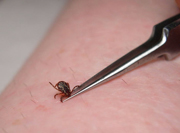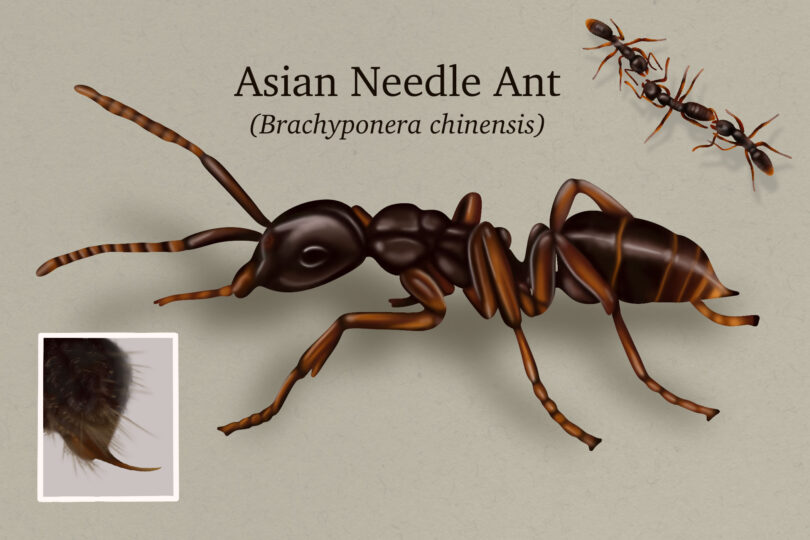Spending time camping, hiking or hunting can be fun and relaxing. Just make sure you don’t get hooked up with a blood-sucking travel partner, says a University of Georgia expert.
“Most people are naturally repulsed by the idea of something sucking their blood,” said Nancy Hinkle, an entomologist with the UGA College of Agricultural and Environmental Sciences. “But, ticks do transmit diseases, too.”
Diseases uncommon in the Peach State
While tick-borne diseases are uncommon in Georgia, a few cases of Rocky Mountain spotted fever have been reported over the past few years. Lone star ticks and black-legged ticks both can carry human ehrlichiosis, a family of sometimes deadly diseases with a range of flu-like symptoms.
If you develop a rash or unexplained flu-like symptoms, Hinkle said, tell your doctor about any recent tick exposure.
In general, she said, ticks have to be attached to their host for at least 24 hours to transmit disease. “Tick checks” are the most effective means of protecting yourself and your pets from tick-borne diseases, she said.
Check your poochie, too
“Check your pets daily for ticks,” she said. “Run your fingers through their coat and remove any ticks before they start feeding.”
Be sure to treat pets. Dogs and cats can catch deadly diseases from ticks. Ask a veterinarian for an appropriate treatment to repel these pests.
Use tweezers to remove ticks that are attached to skin. Pinch the tick close to the mouthparts to remove as much as possible. If the tick head is left behind, don’t worry.
“There is nothing magic about the head,” Hinkle said. “It is like having a thorn in your skin. Your body will expel it over time.”
Use tape on seed ticks
Use tape to remove seed ticks, which are baby ticks about the size of a freckle that cluster together after birth.
“If you get attacked by seed ticks, there will be so many of them it will be horrifying,” said Hinkle, speaking from experience. “Take a piece of tape and press it against the ticks and rip them off. Tape is a quick way to get a lot of ticks off. It removes them effectively and traps them so they can’t attack you again.”
Ticks must be removed manually. There is nothing to pour on ticks to remove them and showers will not get them off.
The raised red bite from a tick includes highly-allergenic salivary agents that may itch for weeks.
“Your body considers this a strong allergen, and it takes a long time for the blood components to break down the feeding tube the tick created under your skin,” Hinkle said.
Ticks live where hosts live
You’ll likely find ticks in areas where their favorite hosts, such as rabbits and mice, inhabit. You can find them all year long in places with thick vegetation, with lots of underbrush, or in overgrown fields or wooded areas. Ticks are most prevalent March through September. Deer ticks survive through the winter.
“There is not a month of the year where we don’t have ticks in Georgia,” Hinkle said.
To keep ticks off, treat your skin and your clothes with DEET, the chemical found in most insect repellants. She also suggests treating clothing with permanone products.
“Ticks don’t fly, jump, leap or climb very high so they are seldom found high above ground,” she said. “They hang on low-growing vegetation, stick out their hook-like claws and when we walk by, they latch on and climb upward.”
Because ticks don’t fall from trees, they tend to climb from ankle-height. She recommends treating socks and pant legs up to the knee with Permanone products that contain permethrin.
Treat yourself and your clothes
However, hunters should treat their entire outfit since they will likely be out all day. Permethrin will penetrate clothing and last through half a dozen washings. Permethrin products also kill and repel mosquitoes and fleas.
“It is a double whammy, and is very effective,” she said.
For added protection, hikers, hunters and blackberry pickers might want to tuck their pant cuffs into their socks. “That keeps ticks on the treated surface and off our skin,” she said.








